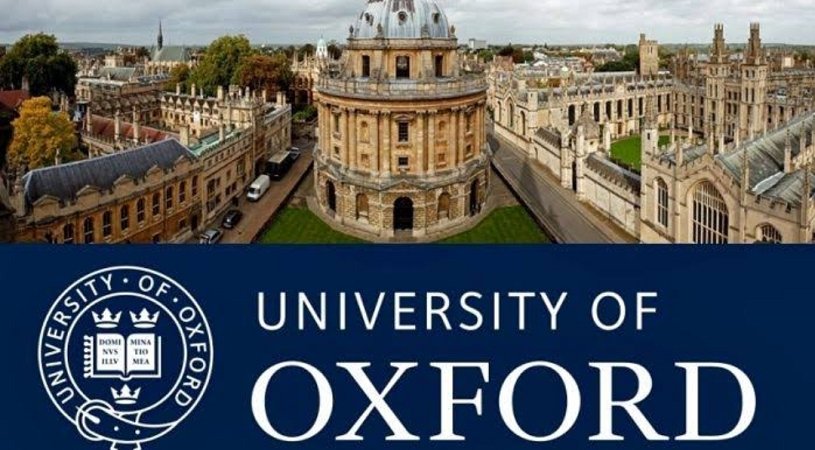
Oxford University is the oldest university in the English-speaking world, having been established in 1096. The university began as a loosely-organized group of scholars who gathered in Oxford to study and teach, and gradually evolved into a formal institution with recognized degrees and academic disciplines. Today, Oxford University is renowned for its academic excellence, with a reputation for producing some of the world’s top scholars, thinkers, and leaders. Its long and storied history is a testament to the enduring power of education and scholarship.
The university was initially known as “Schola Oxoniensis” or “University of Oxford” and received its royal charter in 1248. This charter granted the university certain privileges and rights, including the ability to hold property and confer degrees. Over time, Oxford University grew in size and reputation, attracting students and scholars from around the world. Today, it is one of the most prestigious universities in the world, known for its rigorous academic programs, groundbreaking research, and distinguished alumni.
There are 38 colleges at Oxford University, with the oldest being University College, founded in 1249. Each college is a self-governing community of scholars, with its own unique traditions, history, and culture. Students are admitted to a particular college and become part of its community, participating in events, activities, and traditions that have been established over hundreds of years. The college system is a defining characteristic of Oxford University, contributing to its sense of tradition and identity.
The total number of students at Oxford University is approximately 24,000, with over 11,000 undergraduate students and 13,000 graduate students. These students come from diverse backgrounds and represent a wide range of academic disciplines and fields of study. They are attracted to Oxford University for its academic excellence, research opportunities, and the chance to be part of a vibrant intellectual community. Oxford University is committed to providing its students with the best possible education and preparing them for leadership roles in their chosen fields.
The University has produced over 30 British Prime Ministers, including Margaret Thatcher, Tony Blair, and David Cameron. These alumni have made significant contributions to British politics and society, shaping the course of history in their own way. In addition to Prime Ministers, Oxford University has produced many other notable political figures, including Members of Parliament, Cabinet Ministers, and diplomats. The university’s political heritage is a testament to its commitment to academic excellence and to producing leaders who can make a positive impact on the world.
Oxford has also produced many notable literary figures, including J.R.R. Tolkien, C.S. Lewis, Oscar Wilde, and Lewis Carroll. These authors have had a profound impact on the world of literature and popular culture, inspiring generations of readers and writers. Their works continue to be studied and celebrated at Oxford University, which has a strong tradition of literary scholarship and research. Oxford University’s literary heritage is a testament to the enduring power of the written word and to the role of education in fostering creativity and imagination.
The university has been associated with many groundbreaking scientific discoveries, including the discovery of the structure of DNA by Francis Crick and James Watson in 1953. This discovery revolutionized the field of genetics and has had a profound impact on medicine and science. In addition to DNA, Oxford University has played a key role in research in areas such as physics, chemistry, and neuroscience. The university’s commitment to scientific excellence is reflected in its state-of-the-art research facilities and its world-renowned faculty.
In 1913, Emily Davison, a suffragette, threw herself in front of the King’s horse at the Epsom Derby. She was a graduate of Oxford University and is buried in the St Mary’s Churchyard. This act of protest was a pivotal moment in the struggle for women’s suffrage in the UK and is still remembered today as a powerful symbol of the fight for gender equality. Emily Davison’s connection to Oxford University highlights the role that the university has played in the history of women’s education and the advancement of women’s rights.
The Bodleian Library at Oxford University is one of the oldest and most important libraries in the world, with a collection of over 13 million books, manuscripts, and other materials. The library was founded in the 14th century and has grown over time to become a leading research library, attracting scholars and researchers from around the world. The Bodleian Library is also known for its magnificent architecture, including the historic Divinity School and Radcliffe Camera buildings.
The Oxford Union Society is a prestigious debating society at Oxford University, with a history dating back over 200 years. The society has hosted many notable speakers over the years, including Winston Churchill, Albert Einstein, and Mother Teresa. The Oxford Union is known for its lively debates and discussions, as well as its role in shaping public opinion and influencing political discourse.
The University of Oxford is home to the world-renowned Oxford University Press, which is one of the largest and most respected academic publishers in the world. The press publishes a wide range of scholarly works, including textbooks, journals, and reference materials. Its publications are used by students and scholars around the world and have had a significant impact on academic research and scholarship.
The Radcliffe Observatory at Oxford University was built in 1772 and was used for astronomical research for over 100 years. The observatory played a key role in the development of astronomical knowledge and techniques, including the use of photography to record astronomical phenomena. Today, the Radcliffe Observatory is a historic landmark and a symbol of Oxford University’s commitment to scientific research and exploration.
The Oxford-Cambridge Boat Race is one of the oldest and most famous sporting events in the world, dating back to 1829. The race takes place on the River Thames and is a test of strength, skill, and endurance for the rowing teams from Oxford and Cambridge Universities. The race attracts thousands of spectators and is watched by millions of people around the world.
The University of Oxford has produced many Nobel Prize winners over the years, including Sir Roger Penrose, who won the Nobel Prize in Physics in 2020 for his work on black holes. Other Oxford alumni who have won Nobel Prizes include chemist Dorothy Crowfoot Hodgkin, economist Amartya Sen, and writer and philosopher Bertrand Russell. Oxford University’s commitment to excellence in research and scholarship is reflected in its many Nobel Prize winners.
The University of Oxford has a long and rich musical tradition, with many famous composers and musicians having studied or performed at the university. These include composers such as Ralph Vaughan Williams and William Walton, and performers such as cellist Jacqueline du Pré and pianist Daniel Barenboim. Oxford University’s musical heritage is celebrated through its many music societies, concerts, and festivals.
The Oxford University Museum of Natural History is one of the most important natural history museums in the world, with a collection of over 7 million specimens. The museum was founded in 1850 and has played a key role in the development of natural history research and education. Its collection includes fossils, rocks, minerals, and living specimens, and it is used by scientists and researchers from around the world.
The University of Oxford has a rich sporting heritage, with many famous athletes and sports teams having represented the university over the years. These include Olympic gold medalists such as Sir Roger Bannister, who was the first person to run a mile in under four minutes, and Sir Matthew Pinsent, a four-time Olympic gold medalist in rowing. Oxford University also has a strong tradition in rugby, with its annual Varsity Match against Cambridge University being one of the oldest and most prestigious rugby matches in the world.
The University of Oxford has a long and fascinating history of scientific discovery, with many important scientific breakthroughs being made by Oxford researchers over the years. These include the discovery of penicillin by Sir Alexander Fleming, the development of the first successful vaccine for Ebola by Professor Adrian Hill, and the creation of the world’s first laboratory-grown meat by Dr. Mark Post.
The Oxford English Dictionary, one of the most comprehensive and authoritative dictionaries in the English language, was first published in 1884 by the Oxford University Press. The dictionary took over 70 years to complete and contains over 600,000 words and definitions, making it an invaluable resource for scholars, students, and anyone interested in the English language.
Oxford University is home to some of the world’s most prestigious research centers and institutes, covering a wide range of disciplines including medicine, science, social sciences, and humanities. These research centers are at the forefront of groundbreaking research, contributing to advancements in fields such as climate change, artificial intelligence, and cancer research.
The University of Oxford has a strong commitment to sustainability and environmental conservation, with a range of initiatives and programs aimed at reducing its environmental impact and promoting sustainable practices. These include efforts to reduce carbon emissions, promote renewable energy, and encourage sustainable transportation and waste management.
Oxford University has a diverse and international student body, with students from over 150 countries studying at the university. This international community brings together people from all over the world, promoting cultural exchange and understanding, and providing a unique and enriching learning experience for all students.
Oxford University is not only one of the world’s leading academic institutions but also a cultural and artistic hub, with a vibrant arts scene that includes theater, music, literature, and visual arts. Oxford’s many cultural events and festivals, including the Oxford Literary Festival and the Oxford Playhouse, attract visitors from around the world and provide a platform for creative expression and artistic innovation.









